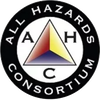Working Group Overview
The work of the All Hazards Consortium is done primarily through the activities of the Working Groups and Use Case Committees.
Comprised of members from the public and private sectors, trade groups education, and non-profits, these groups provide a unique way for stakeholders to come together to discuss critical issues facing the region.
These groups are comprised of action-oriented; results focus professionals and provide the complex problem-solving capabilities of the AHC.
The AHC provides the safe legal environment for the groups to meet and speak openly and frankly.
As a Maryland 501c3, the AHC is exempt from frivolous Freedom of Information Act (FOIA) requests from non-operational people or organizations (e.g. media, competitive interests, researchers, etc...)
Over the years, this has built a trusted environment that is passionately protected by the stakeholders of the AHC as they solve problems and share sensitive information in the process.
Use Case Committees:
"Use Case" committees are formed to being to working a problem or issue.
These Committees can be spun up quickly to address a specific issues. They follow a proven six step Use Case Development Process (six, 60 minute calls facilitated by an AHC problem solving specialists). These six calls lead to one of the following outcomes:
1) Potential solutions are identified and a recommendation is made to form a working group to continue the work
2) No potential solutions are identified OR the problem/solutions are too complex, will take too long to show results, or another organization is already working the problem. In these cases, the use case is place in the parking lot for later discussion.
If the Use Case Committee makes a recommendation to move forward and there are sufficient resources from the AHC or partners available, a working group is formed to begin to develop the solution(s). This is always based on current work loads and operational priorities at the time.
Working Groups
Working groups are usually larger groups that work on multiple issues or use cases within a single area of focus throughout the year (fleet/resource movement, information sharing, crisis management, exercises, training, etc...)
Comprised of members from the public and private sectors, trade groups education, and non-profits, these groups provide a unique way for stakeholders to come together to discuss critical issues facing the region.
These groups are comprised of action-oriented; results focus professionals and provide the complex problem-solving capabilities of the AHC.
The AHC provides the safe legal environment for the groups to meet and speak openly and frankly.
As a Maryland 501c3, the AHC is exempt from frivolous Freedom of Information Act (FOIA) requests from non-operational people or organizations (e.g. media, competitive interests, researchers, etc...)
Over the years, this has built a trusted environment that is passionately protected by the stakeholders of the AHC as they solve problems and share sensitive information in the process.
Use Case Committees:
"Use Case" committees are formed to being to working a problem or issue.
These Committees can be spun up quickly to address a specific issues. They follow a proven six step Use Case Development Process (six, 60 minute calls facilitated by an AHC problem solving specialists). These six calls lead to one of the following outcomes:
1) Potential solutions are identified and a recommendation is made to form a working group to continue the work
2) No potential solutions are identified OR the problem/solutions are too complex, will take too long to show results, or another organization is already working the problem. In these cases, the use case is place in the parking lot for later discussion.
If the Use Case Committee makes a recommendation to move forward and there are sufficient resources from the AHC or partners available, a working group is formed to begin to develop the solution(s). This is always based on current work loads and operational priorities at the time.
Working Groups
Working groups are usually larger groups that work on multiple issues or use cases within a single area of focus throughout the year (fleet/resource movement, information sharing, crisis management, exercises, training, etc...)
Currently, the Working Groups supported by the AHC are as follows:
These groups are comprised of action oriented; results focus professionals and provide the complex problem solving capabilities of the AHC.
- Multi-State Fleet Response Working Group
- Sensitive Information Sharing Environment (SISE) Working Group
- State Liaison Working Group
- Cross-Sector Virtual Exercise Working group
- Endeavor – Pennsylvania Working Group
- Operational Training Working Group
- SIS-net / GIS (Geo-spatial Information Sharing) Working Group (formerly GIS workgroup)
These groups are comprised of action oriented; results focus professionals and provide the complex problem solving capabilities of the AHC.
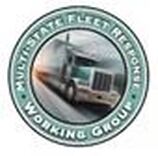
Multi State Fleet Response Working Group
This group was formed after Super Storm Sandy in 2012 to begin addressing a myriad of operational delays experienced by the electric sector and its mutual assistance resource movement processes.
Coordinating with multiple states during disasters has remained its primary objective.
This group is comprised of industry stakeholders across multiple sectors including electric, food, fuel, transportation communications, water, retail, financial, etc.
This group has produced dozens of operational solutions which its members utilize to expedite information sharing between industry and coordination with state and local government during regional national disasters to expedite power and infrastructure restoration.
This group serve national stakeholders and has given birth to multiple working groups including:
For more information visit: Fleet Response WG
This group was formed after Super Storm Sandy in 2012 to begin addressing a myriad of operational delays experienced by the electric sector and its mutual assistance resource movement processes.
Coordinating with multiple states during disasters has remained its primary objective.
This group is comprised of industry stakeholders across multiple sectors including electric, food, fuel, transportation communications, water, retail, financial, etc.
This group has produced dozens of operational solutions which its members utilize to expedite information sharing between industry and coordination with state and local government during regional national disasters to expedite power and infrastructure restoration.
This group serve national stakeholders and has given birth to multiple working groups including:
- The Sensitive Information Sharing Environment (SISE) Working Group
- The State Private Sector Liaison Working Group
- The SISE-net Working Group
- The SISE-net Cross-Sector Exercise Working Group
- The Operational Training Working Group
For more information visit: Fleet Response WG
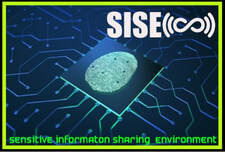
Sensitive Information Sharing Environment (SISE) Working Group
This group was formed in 2015 as part of a federally funded pilot project with DHS Science and Technology which focused on securing information-sharing and developing agreements between multiple states and industry using the PIV-I (Personal Identity Verification – Interoperable) credentials. Since then, this working group has focused on the people, processes, standards, information and technology needed to to sync situational awareness between industry and state government operations centers during disasters.
This group is comprised of industry and local/state/ federal government stakeholders in operations, public information, and policy areas.
This group focuses on developing frameworks that organize, protect, rank, and display data sets for use within a wide variety of products and systems within the SISE community or their government/industry partners.
This group is currently developing several initiatives, particularly the ongoing operation of the SISE framework, the SISE-net initiative that is linking and syncing industry and state emergency operation centers to coordinate their situational awareness, disaster response efforts, enhance critical infrastructure resilience, and reduce overall infrastructure and community risks.
This group was formed in 2015 as part of a federally funded pilot project with DHS Science and Technology which focused on securing information-sharing and developing agreements between multiple states and industry using the PIV-I (Personal Identity Verification – Interoperable) credentials. Since then, this working group has focused on the people, processes, standards, information and technology needed to to sync situational awareness between industry and state government operations centers during disasters.
This group is comprised of industry and local/state/ federal government stakeholders in operations, public information, and policy areas.
This group focuses on developing frameworks that organize, protect, rank, and display data sets for use within a wide variety of products and systems within the SISE community or their government/industry partners.
This group is currently developing several initiatives, particularly the ongoing operation of the SISE framework, the SISE-net initiative that is linking and syncing industry and state emergency operation centers to coordinate their situational awareness, disaster response efforts, enhance critical infrastructure resilience, and reduce overall infrastructure and community risks.
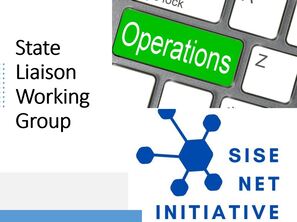
State Private Sector Liaison Working Group
This group was formed in January 2018 at the request of the private sector to help improve operational coordination with states following the 2017 hurricane season.
This group is comprised of state emergency management agency representatives who are responsible for the operations of their private sector programs within each state.
This group looks at operational issues facing both private sector and states, shares best practices, provides mentorship and training to its members, and works with the private sector stakeholders of the fleet response working group during disasters.
The group provides regional coordination and operational information-sharing with members of the Fleet Response Working Group and participate in the development of apps and data solutions.
This group was formed in January 2018 at the request of the private sector to help improve operational coordination with states following the 2017 hurricane season.
This group is comprised of state emergency management agency representatives who are responsible for the operations of their private sector programs within each state.
This group looks at operational issues facing both private sector and states, shares best practices, provides mentorship and training to its members, and works with the private sector stakeholders of the fleet response working group during disasters.
The group provides regional coordination and operational information-sharing with members of the Fleet Response Working Group and participate in the development of apps and data solutions.
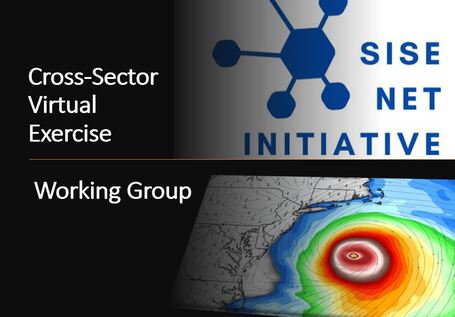
SISE-net Cross-Sector Virtual Exercise Working Group
This working group (formed under the SISE working group) was formed in April 2021 at the request of the private sector to help synchronize cross-sector planning and situational awareness for the upcoming 2021 hurricane season.
This group is comprised of state and industry emergency managers from multiple states and sectors.
This group is focused on developing a simple, cross-sector, operations focused virtual tabletop exercises that could be conducted each year to prepare for hurricane season.
In Fall of 2021, the working group launched the first virtual, cross-sector tabletop exercise (in the Gulf Region). The results and findings from the tabletop were captured in a post exercise report. Several findings and solutions were developed that were utilized a few weeks later during hurricane IDA.
In December 2021, the working group also conducted a cross-sector winter storm exercise (for the Northeast Region) in the 4th quarter based on the same methodology used for the hurricane season exercise.
Learn More: https://www.ahcusa.org/sise-virtual-exercise.html
This working group (formed under the SISE working group) was formed in April 2021 at the request of the private sector to help synchronize cross-sector planning and situational awareness for the upcoming 2021 hurricane season.
This group is comprised of state and industry emergency managers from multiple states and sectors.
This group is focused on developing a simple, cross-sector, operations focused virtual tabletop exercises that could be conducted each year to prepare for hurricane season.
In Fall of 2021, the working group launched the first virtual, cross-sector tabletop exercise (in the Gulf Region). The results and findings from the tabletop were captured in a post exercise report. Several findings and solutions were developed that were utilized a few weeks later during hurricane IDA.
In December 2021, the working group also conducted a cross-sector winter storm exercise (for the Northeast Region) in the 4th quarter based on the same methodology used for the hurricane season exercise.
Learn More: https://www.ahcusa.org/sise-virtual-exercise.html
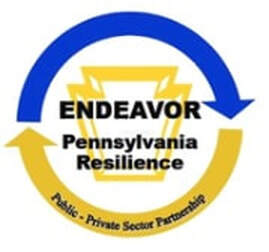
The ENDEAVOR Private Sector Working Group of Pennsylvania
The Pennsylvania Emergency Management Agency and the AHC have partnered to create a new private sector operated working group model that will sustain elections and leadership turnover. Modeled after the AHC’s Multi-State Fleet Response Working Group (FRWG), this new working group, called ENDEAVOR, was formed in 2018 and leveraged best practices from North Carolina's nationally recognized private sector program and the FRWG to create a new public/private governance framework in Pennsylvania. ENDEAVOR works on operational issues with the state across multiple sector issues transportation policy, information sharing, and business-to-business partnerships for disaster response.
This group was formed in January 2018 at the request of the private sector to help improve operational coordination with states following the 2017 hurricane season.
This group is comprised of state emergency management agency representatives who are responsible for the operations of their private sector programs within each state.
This group looks at operational issues facing both private sector and states, shares best practices, provides mentorship and training to its members, and works with the private sector stakeholders of the fleet response working group during disasters.
The group provides regional coordination and operational information-sharing with members of the Fleet Response Working Group and participate in the development of apps and data solutions.
For more information visit: https://www.endeavorPA.org
Pat Shull, Director of Safety, Security & Risk Assessments, Harristown Properties Services, Chair
Carmela Hinderacher, Senior Director Continuity & Customer Support, C&S Wholesale Grocers, Co-Chair, Co-Chair
https://www.linkedin.com/in/carmela-hinderaker/
The Pennsylvania Emergency Management Agency and the AHC have partnered to create a new private sector operated working group model that will sustain elections and leadership turnover. Modeled after the AHC’s Multi-State Fleet Response Working Group (FRWG), this new working group, called ENDEAVOR, was formed in 2018 and leveraged best practices from North Carolina's nationally recognized private sector program and the FRWG to create a new public/private governance framework in Pennsylvania. ENDEAVOR works on operational issues with the state across multiple sector issues transportation policy, information sharing, and business-to-business partnerships for disaster response.
This group was formed in January 2018 at the request of the private sector to help improve operational coordination with states following the 2017 hurricane season.
This group is comprised of state emergency management agency representatives who are responsible for the operations of their private sector programs within each state.
This group looks at operational issues facing both private sector and states, shares best practices, provides mentorship and training to its members, and works with the private sector stakeholders of the fleet response working group during disasters.
The group provides regional coordination and operational information-sharing with members of the Fleet Response Working Group and participate in the development of apps and data solutions.
For more information visit: https://www.endeavorPA.org
Pat Shull, Director of Safety, Security & Risk Assessments, Harristown Properties Services, Chair
Carmela Hinderacher, Senior Director Continuity & Customer Support, C&S Wholesale Grocers, Co-Chair, Co-Chair
https://www.linkedin.com/in/carmela-hinderaker/
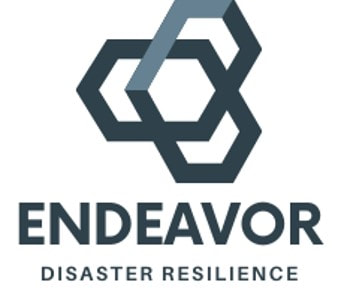
The ENDEAVOR Private Sector Working Group of Virginia
The Virginia Department of Emergency Management Agency and the AHC partnered in 2023 to create a new private sector-operated working group model that will sustain elections and leadership turnover.
Modeled after the AHC’s Multi-State Fleet Response Working Group (FRWG), this new working group, called ENDEAVOR-VA, will formalize partnerships between emergency management and private sector partners to reduce the impacts of hazards statewide by increasing overall resiliency with increased preparedness response, and recovery capabilities, ultimately saving lives and better-protecting property.
Created by industry with state support, ENDEAVOR is a structured problem-solving and planning model to formalize partnerships between emergency management and private sector partners to reduce the impacts of hazards statewide.
The ENDEAVOR program will bring together industry and government to discuss complex statewide operational issues that require multiple industry sectors, public/private partnership organizations, counties, and state agencies to solve.
ENDEAVOR will provide a new framework operated by industry, designed to address operational issues, build partnerships, develop agreements, leverage resources & capabilities, pursue joint projects, and jointly create process or information-sharing-based innovations that increase overall resilience in Virginia’s businesses, communities, and public/private organizations statewide.
For more information, visit: https://www.endeavorVA.org
The Virginia Department of Emergency Management Agency and the AHC partnered in 2023 to create a new private sector-operated working group model that will sustain elections and leadership turnover.
Modeled after the AHC’s Multi-State Fleet Response Working Group (FRWG), this new working group, called ENDEAVOR-VA, will formalize partnerships between emergency management and private sector partners to reduce the impacts of hazards statewide by increasing overall resiliency with increased preparedness response, and recovery capabilities, ultimately saving lives and better-protecting property.
Created by industry with state support, ENDEAVOR is a structured problem-solving and planning model to formalize partnerships between emergency management and private sector partners to reduce the impacts of hazards statewide.
The ENDEAVOR program will bring together industry and government to discuss complex statewide operational issues that require multiple industry sectors, public/private partnership organizations, counties, and state agencies to solve.
ENDEAVOR will provide a new framework operated by industry, designed to address operational issues, build partnerships, develop agreements, leverage resources & capabilities, pursue joint projects, and jointly create process or information-sharing-based innovations that increase overall resilience in Virginia’s businesses, communities, and public/private organizations statewide.
For more information, visit: https://www.endeavorVA.org
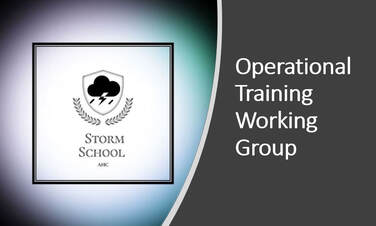
Operational Training Working Group
This group was formed in March 2021 at the request of the private sector to help improve operational training for current and future crisis managers.
This group is initially comprised of former industry professionals from the electric sectors, each with 40+ years of experience.
This group focused on developing operational focused training focused on the principles of crisis management faster and how to apply them from instructors who bring real-world experience from the past 35+ years.
In 2021, this group launched its first training initiative called STORM School, a new online learning environment that provide access to multiple courses at no costs. Additionally, in May 2021 the group will launch its first live workshop focused on the PREPAREDNESS phased of the crisis management planning cycle.
Learn more: https://stormschool.org/courses-a
This group was formed in March 2021 at the request of the private sector to help improve operational training for current and future crisis managers.
This group is initially comprised of former industry professionals from the electric sectors, each with 40+ years of experience.
This group focused on developing operational focused training focused on the principles of crisis management faster and how to apply them from instructors who bring real-world experience from the past 35+ years.
In 2021, this group launched its first training initiative called STORM School, a new online learning environment that provide access to multiple courses at no costs. Additionally, in May 2021 the group will launch its first live workshop focused on the PREPAREDNESS phased of the crisis management planning cycle.
Learn more: https://stormschool.org/courses-a
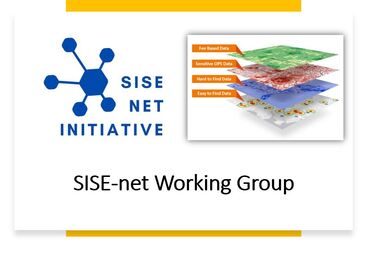
SISE-net Working Group (formerly GIS work group)
This group was formed in 2018 from member requests in industry and government regarding the need to fix data synchronization during regional disasters. This group is comprised of industry and local/state/federal government stakeholders in operations, public information, and policy areas.
This group focuses on building data sharing standards and agreements for operational decision-making, vetting data sets utilizing the new ORL (Operational Readiness Level) standard, developing new information sources and partners, and finding ways to support data-driven decision-making solutions for government and industry.
The group has already produced many solutions, particularly a national data confidence standard for decision- makers that ranks data sets for confidence in decision-making (the ORL standard). The ORL helps decision-makers know which data sets have been vetted for confidence levels so they can make faster decisions and not have to stop and validate data when looking at GIS related products
Currently, the group is focused on integrating ESRI GIS software and Microsoft TEAMS into the SISE framework for overall information sharing and collaboration to support crisis management.
Learn more: https://www.ahcusa.org/sisenet.html
This group was formed in 2018 from member requests in industry and government regarding the need to fix data synchronization during regional disasters. This group is comprised of industry and local/state/federal government stakeholders in operations, public information, and policy areas.
This group focuses on building data sharing standards and agreements for operational decision-making, vetting data sets utilizing the new ORL (Operational Readiness Level) standard, developing new information sources and partners, and finding ways to support data-driven decision-making solutions for government and industry.
The group has already produced many solutions, particularly a national data confidence standard for decision- makers that ranks data sets for confidence in decision-making (the ORL standard). The ORL helps decision-makers know which data sets have been vetted for confidence levels so they can make faster decisions and not have to stop and validate data when looking at GIS related products
Currently, the group is focused on integrating ESRI GIS software and Microsoft TEAMS into the SISE framework for overall information sharing and collaboration to support crisis management.
Learn more: https://www.ahcusa.org/sisenet.html
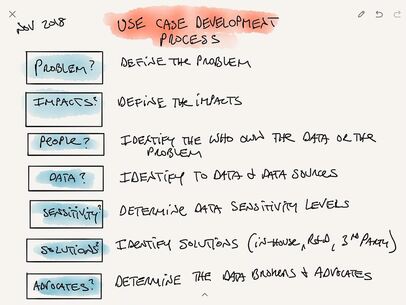
Use Case Committees
- Regional Pre-Staging - looks at ways to leverage commercial parking lots as pre-staging areas for utilities prior to disasters.
- Lodging Availability Data - looks at ways to improve industry and government coordination for policy process and technology solutions to support lodging needs during disasters.
- Route Availability Data - looks at current and new partners, solutions, and methods of obtaining transportation route availability information, specifically road closure information, in real-time.
- Fuel Availability Data - looks at enhancing information-sharing and partnerships on fuel availability and distribution during disasters.
- Enhancing Urban Building Access - looks at creating solutions for faster access to better organized and secured building information during police and fire related incidents.
- COVID-19 Operational Feedback Survey to Government - looks at processes and methods for industry to communicate operational impacts on commerce from government decisions during COVID-19 pandemic.
- Commercial Route Assistance App - focused on developing the commercial route assistance application to expedite commercial vehicle movement across multiple states during multiple state COVID-19 restrictions, closures and social distancing.
- Post Cyber-Attack Coordination Exercise with State Agencies - develop an exercise to be used by utilities and states to better understand the multiple agencies (emergency management, executive, law- enforcement, elections, information technology, general services, etc.) involved in a post cyber incident impacted power grid, communications and election systems. Exercise outputs would include directories of industry and state government points of contact, communication protocols, etc.
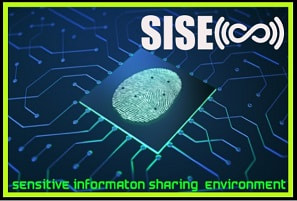
SISE Strategic Advisory Committee
This group was formed in spring of 2018 following the 2017 hurricane season to provide short-term and long- term strategy and recommendations on how best to leverage the SISE and its partners and capabilities to serve the public/private benefit at all levels of government and across all industries sectors.
This group is comprised of senior level stakeholders and federal and state government along with industry, trade associations and academia.
This group focuses on the long-term strategic development and deployment of the SISE for the public/private benefit.
This group has advised on a wide variety of topics, assisted with partnership development, resource acquisition, training, and developing directives that continue to focus the SISE on reducing risk and enhancing national critical infrastructure resilience
This group was formed in spring of 2018 following the 2017 hurricane season to provide short-term and long- term strategy and recommendations on how best to leverage the SISE and its partners and capabilities to serve the public/private benefit at all levels of government and across all industries sectors.
This group is comprised of senior level stakeholders and federal and state government along with industry, trade associations and academia.
This group focuses on the long-term strategic development and deployment of the SISE for the public/private benefit.
This group has advised on a wide variety of topics, assisted with partnership development, resource acquisition, training, and developing directives that continue to focus the SISE on reducing risk and enhancing national critical infrastructure resilience
These working groups may develop sub-committees that focus on more specific areas of interest based on the needs of the private sector or the regional states.
